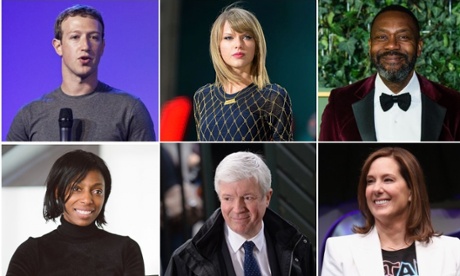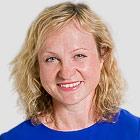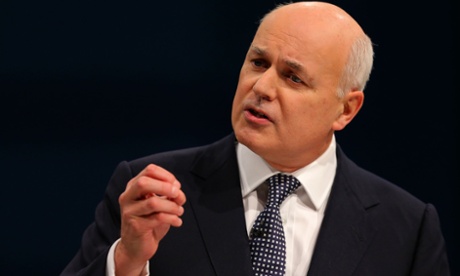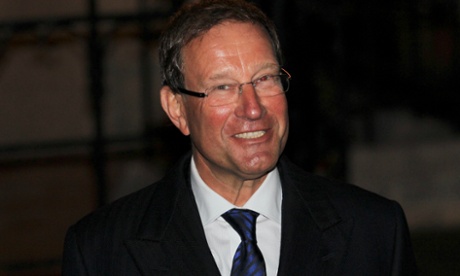Back in 2001, when this list was first published, there was no YouTube, Snapchat, Netflix, iPlayer, 4G or Twitter. When media types talked about their social networks, they meant the people they had lunch or drinks with, probably at the Ivy.
At the start of the millennium, Bill Gates, then the world’s richest man, led the quaintly titled “new media” section of the list, which also included the head of retailer Tesco. A 17-year-old Mark Zuckerberg was still three years away from starting Facebook.
Now, huge technology groups which reach into every aspect of our lives dominate the business of communication, with Zuckerberg’s social networking giant – which reached a 1 billion daily user milestone this year – sitting astride them all. In the words of one of this year’s MediaGuardian 100 judges “it’s hard to argue with Facebook’s domination over everything”.
The internet, mobile and broadband has changed so much of the media business and this, the 15th edition of MediaGuardian 100, seemed as good a time as any to take stock.
For a start, the media village is now truly global, even if still dominated by the English language. Using the original criteria of cultural influence, economic clout and political power, our judges selected from a relatively small cadre in 2001. Trevor Phillips, broadcaster and a judge in 2001 and again this year, said: “That first list looks incredibly insular now. It was basically all people we knew. Today’s list consists of people I’ve never met, some of whom I probably never will meet, yet they run enterprises the size of small countries.”
There are, however, some striking similarities between the two lists. In 2001, the judges “questioned how long” the most powerful man in media could stay at the top – yet Rupert Murdoch remains head of an empire that includes the Fox film and television business as well as newspapers from the Sun to the Wall Street Journal and is safely within the top 10.
He is still powerful enough to appoint his own sons to head the two divisions of his business, and reappoint Rebekah Brooks to run his UK newspapers after she was cleared of all phone-hacking charges. Fifteen years ago, under the headline “Rebekah Wades in”, the then News of the World editor was the list’s youngest entrant. “Many believe that one day she will be the first woman to edit the Sun,” said the judges.
The director general of the BBC, then Greg Dyke, now Tony Hall, still features in the top 10 because of the corporation’s continuing cultural significance. Armando Iannucci, who enters this list after a barnstorming speech in defence of the BBC, talked of how it has set an example for all broadcasters, despite its faults. In 2001, some of the corporation’s almost 24,000 staff peppered the lower reaches of the list: now, as the BBC faces a fight with the government over the scope of its operations, you’ll see far fewer.
George Osborne makes the list this year – the one other chancellor of the exchequer to have done so was Gordon Brown in 2001 because of his power to bring about a single ITV and stop cross-media ownership. If anything, Osborne is even more powerful with dominion over the future of the BBC, the privatisation of Channel 4 and press regulation.
When it launched, the list was dominated by white men who ran either British newspapers or broadcasters: in 2015, white men still dominate, though the gap is not as overwhelming.
There are 31 women on the list, 50% more than last year and almost three times the number in 2011. Women have moved from secondary to primary positions whether at the Guardian, where Katharine Viner was appointed the first ever female editor-in-chief, or in film, where Kathleen Kennedy took charge of the blockbuster Star Wars franchise after decades as a support act.
Caitlyn Jenner also became the first transgender member of our list, helping to change attitudes via social media and the cover of Vanity Fair.
When we named Taylor Swift in our top 10 last year, there were some who scoffed – but she showed real power in making Spotify and then Apple recognise creative value. Or, as one of our judges said, she “singlehandedly got Apple to take notice when they totally ignored major corporations”.
The other woman in our top 10, Sharon White, not only controls the destiny of many media and technology businesses as the head of Ofcom but has positioned the regulator as most likely contender to oversee the BBC come charter renewal.
Despite these breakthroughs, there is still a lack of diversity in our list and the wider media industry. “The media lectures everybody else and people in the media think of themselves as much more open, but they are absolutely nowhere on this,” notes Phillips, a former chair of the Equality and Human Rights Commission. On the flip side, the increasing importance of writers, singers and other creatives this year reflects a more diverse world, whether of gender, race or upbringing.
We live in a new era yet by keeping to exactly the same criteria as used in 2001 our list has somehow reflected the changes of our times. We asked more judges for their opinion but of course no such list is infallible.
In 2001 the aim of this list was to “trigger a debate rather than provide the final word”. In 2015, we can properly have that debate. So, over to you.
Meet the judges
Bim Adewunmi, culture editor, BuzzFeed UK
Ajaz Ahmed, chief executive, AKQA
Roger Alton, former editor, Observer
Louise Court, executive, Hearst UK
Claire Enders, founder, Enders Analysis
Julie Etchingham, presenter, ITV News
Wayne Garvie, chief creative officer, Sony
Tim Hincks, president, Endemol Shine Group
Mark Little, executive, Twitter
Roger Mosey, former BBC executive
Shaminder Nahal, deputy editor, Channel 4 News
Trevor Phillips, writer, broadcaster
Vivian Schiller, former Twitter executive
Jonathan Shalit, talent agent
Guardian:
Jane Martinson, head of media
Caspar Llewellyn Smith, digital platforms editor
Merope Mills, west coast editor
John Plunkett, broadcasting correspondent
Stuart Dredge, technology writer









